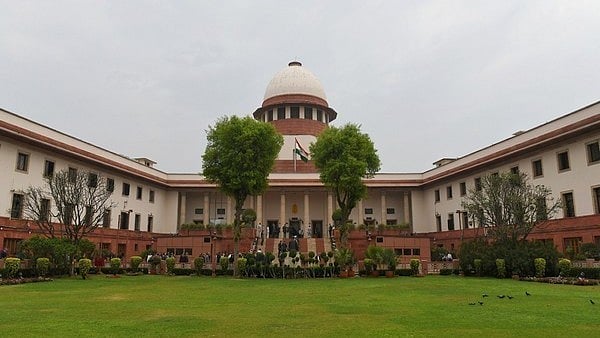
Supreme Court of India
Credit: PTI Photo
New Delhi: The Supreme Court on Thursday said that in recent times the invocation of offences like dowry harassment, rape, unnatural sex and criminal intimidation is being used as a combined package in most of the complaints related to matrimonial disputes, a practice condemned by this court on several occasions.
A bench of Justices B V Nagarathna and N Kotiswar Singh said the women need to be careful about the fact that the strict provisions of law in their hands are beneficial legislations for their welfare and not means to chastise, threaten, domineer or extort from their husbands.
Dealing with a matter related to matrimonial dispute, the bench emphasised that the maintenance to a woman would depend on multiple factors not just on what her husband paid to his ex-wife as permanent alimony or his income only.
Focussing on criminal proceedings between spouses and their impact on marital ties, Justice Nagarathna who authored the judgment on behalf of the bench, said, "In certain cases, the wife and her family tend to use a criminal complaint with all the serious offences as a platform for negotiation and as a mechanism and a tool to get the husband and his family to comply with their demands, which are mostly monetary in nature."
The court felt sometimes this is done in a fit of rage after a marital dispute, while at times it is a planned strategy in other cases.
"Unfortunately, it is not just the parties who are involved in this abuse of the process of law. They are understandably fuelled by the emotions of the situation. But other stakeholders also worsen the situation as they may often devise such crafty strategies for the women to adopt such arm-twisting tactics for their ulterior motives," it said.
Further, it pointed out, the police personnel are sometimes quick to jump into action in selective cases and arrest the husband or even their relatives, including aged and bedridden parents and grand-parents of the husband. The trial courts are hesitant in granting bail to the accused persons being swayed by the “gravity of the offences” mentioned in the FIR.
"The collective effect of this chain of events is often overlooked by the actual individual players involved therein, which is that even minor disputes between husband and wife tend to snowball into ugly prodigious battles of ego and reputation and washing dirty linen in public, eventually leading to the relationship turning sour to the extent that there remains no possibility of a reconciliation or cohabitation," the bench said.
In the instant case, the bench granted divorce to the couple, finding hardly any chance to reconcile the differences among them. The court rejected the wife's plea to reject husband plea for divorce under Article 142 of the Constitution, by directing him to pay permanent alimony of Rs 12 crore.
The couple solemnised marriage (second marriage for both the parties) in 2021 after getting in touch with each other through a matrimonial site. But, differences cropped up among them shortly after that with the wife filing cases of rape and unnatural sex against not only the husband but against her octogenarian father-in-law. The man, who was a citizen of USA and was engaged in the business of IT consultancy services over there, had to spend some time in jail due to the cases.
Before the apex court, the wife opposed the husband's plea for divorce but at the same time sought hefty sum as alimony.
The wife said her husband is a man of means with a net-worth of Rs 5,000 crores with multiple businesses and properties in USA and in India and that he had paid his first wife at least Rs 500 crores upon separation, excluding a house in Virginia, USA. Thus, she was entitled to permanent alimony commensurate to the status of the respondent-husband.
"We have serious reservations with the tendency of parties seeking maintenance or alimony as an equalisation of wealth with the other party," the bench said.
The fixation of alimony depends on various factors and there cannot be any straight-jacket formula for it, the bench said.
"Thus, the petitioner cannot simply claim an amount equal to what the ex-wife of the respondent had received or on the basis of the income of the respondent," the bench said.
In the case, the bench pointed out the Family Court at Pune has assessed Rs 10 crore as the quantum of permanent alimony. Accepting the amount, the bench said an additional Rs 2 crores is liable to be paid to her to acquire another flat, as she was directed to vacate her father-in-law’s flats in Pune as well as in Bhopal.
"As per settled law, the wife is entitled to be maintained as far as possible in a manner that is similar to what she was accustomed to in her matrimonial home while the parties were together. But once the parties have separated, it cannot be expected of the husband to maintain her as per his present status all his life," the bench said.
